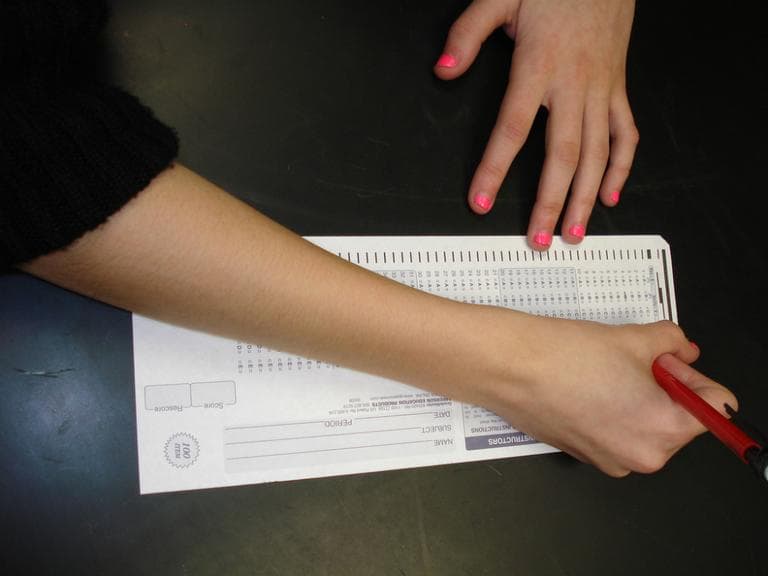Advertisement
Is Testing Knowledge Alone Not Enough?
Resume
The cheating scandal at Harvard has prompted a flurry of questions about academic honesty, the pressure to succeed and campus culture.
But some observers have also been asking: Should we penalize students for collaborating on an assignment? Farhad Manjoo argued that while outright plagiarism is indefensible, collaboration on assignments should be encouraged, not penalized:
[T]oo often in higher education, such collaboration is either given short shrift or actively penalized. Students are instead forced to find the answers on their own, in marked contrast to how they’ll be expected to behave once they graduate.
Leon Neyfakh of the Boston Globe took this idea a step further by looking at alternative testing. He suggestedt that students should be measured on their creativity, resourcefulness, critical thinking and collaboration:
Being successful in today’s world, as we all now recognize, requires more than an ability to think quickly and recall facts on command. And our education system has, however fitfully, moved to address those values. The problem is that our tests still lag behind.
As Neyfakh reports, researchers across the country are working on tests that could measure those "soft" skills. Some are even being tested in Massachusetts classrooms right now — and could one day shape what students learn and what future workers can do.
Guests:
- Leon Neyfakh, Ideas reporter for the Boston Globe
- Jody Clarke-Midura, researcher at the Harvard Graduate School of Education and co-investigator on the Virtual Performance Assessment Project
More:
This segment aired on September 21, 2012.